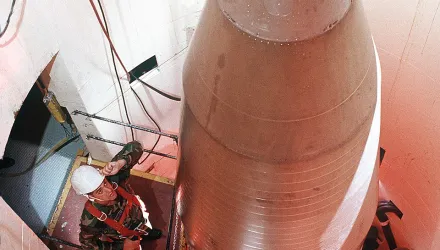Abstract
Cooperation between states has been essential for global nu- clear power development from its inception, due to the techno- logical complexity of nuclear energy and the uneven distribution of uranium resources worldwide. International cooperation has suc- cessfully resulted in the peaceful introduction of nuclear power to numerous countries, but has also contributed to the proliferation of nuclear weapons in several cases. With the acceleration of the globalization process, the integration of the once-divided global nuclear industry, and the emergence of new proliferation risks since the end of the Cold War (such as new nuclear weapon states, rogue proliferators, or nuclear terrorism), it is necessary to under- stand the nature of civil nuclear cooperation, and its implication on nuclear nonproliferation and export control regimes. In this paper, bilateral nuclear cooperation is analyzed in light of the changing nuclear landscape in the post-Cold War era in order to gain a better understanding of the characteristics and effects of such on the mechanisms of cooperation. In Section 2, the academic literature on civil nuclear cooperation, including the facilitators of civil nuclear cooperation, and the effects of such cooperation on the nonproliferation regime, is reviewed alongside the worldwide transformation of the nuclear industry since the end of the Cold War. To test the correlation between the existence of bilateral nu- clear cooperation and various political and economic factors, a linear regression analysis was performed. The results of this anal- ysis are discussed in Section 3, in addition to a comparison of these results with alternative measurements obtained by multinomial logistic regression and social network analysis. Based on the quantitative findings from the regression analysis, a qualitative assessment of the major players in the international nuclear cooperation (including the United States [U.S.], China, Russia, the new uranium suppliers, and multinational corporations) is dis- cussed in Section 4, with a focus on the role that each plays in the nuclear exportation market, and implications for nuclear nonpro- liferation and export control regimes. Finally, the paper is concluded with an emphasis on the importance of commercial bilateral nuclear cooperation on nuclear nonproliferation.
Nguyen, Viet Phuong and Man-Sung Yim. “Post-Cold War Civilian Nuclear Cooperation And Implications For Nuclear Nonproliferation.” Progress in Nuclear Energy, August 27, 2016
The full text of this publication is available via Progress in Nuclear Energy.





